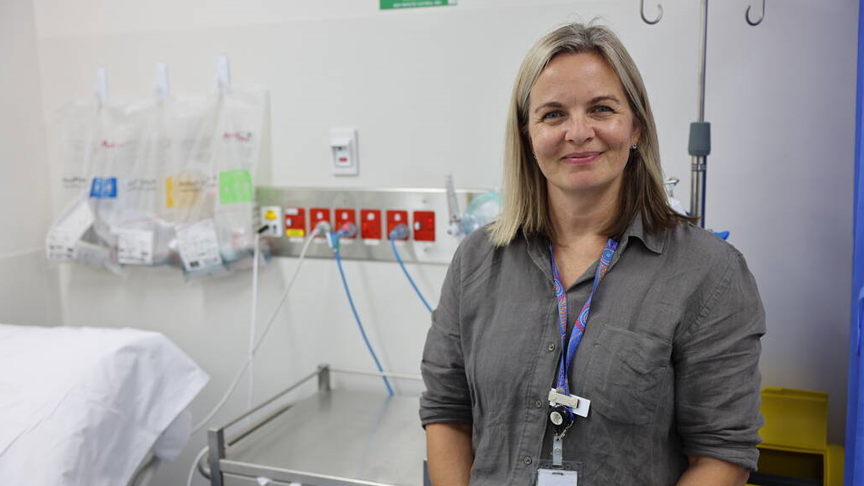
A ‘game-changing’ second triage room has been developed in Gympie Hospital’s Emergency Department, to help patients be seen faster and assist staff managing increasing numbers of presentations.
The room has been fit out with a bed and necessary equipment, to support efficient flow through the Emergency Department, which has seen rapid growth in the number of presentations.
There's been a 7% increase in attendances during the last reporting quarter, compared to the same time last year (April to June).
The ED also experienced a 24% increase in patients triaged as Category 1.
“Within the Emergency Department we’re certainly busy, we’re averaging 100 people a day now, which is a rapid climb,” Gympie Hospital Director of Nursing and Facility Manager Deanne Mitchell said.
The additional space allows more patients to be assessed at once and is being used for both rapid and extended assessments, during peak times.
“We’ve got the primary triage already but this is really helpful for those extended assessments to make sure our initial triage is the right triage for that patient and identifying any risk factors as well,” Gympie Hospital Emergency Department Nurse Unit Manager Samantha Ward said.
“The staff have really embraced the new room and it’s had a really positive effect on the flow of patients through the waiting room,” she said.
It also offers increased privacy for patients who may need it.
“Some people are having some of the worst days of their lives, so you really want to make sure we have sensitivity and compassion, and an element of privacy when needed,” Ms Mitchell said.
Additional nursing staff have also been allocated to the waiting room, to assist with timely assessments and keep an eye on people’s conditions.
“The clinical initiatives nurse is able to check-in with people, whether that be for another set of observations or asking ‘are you okay, can we get you anything, do you need pain relief,” she said.
“Because we’re here for the community, we’re here for the people so we really are sensitive to the needs of that.”